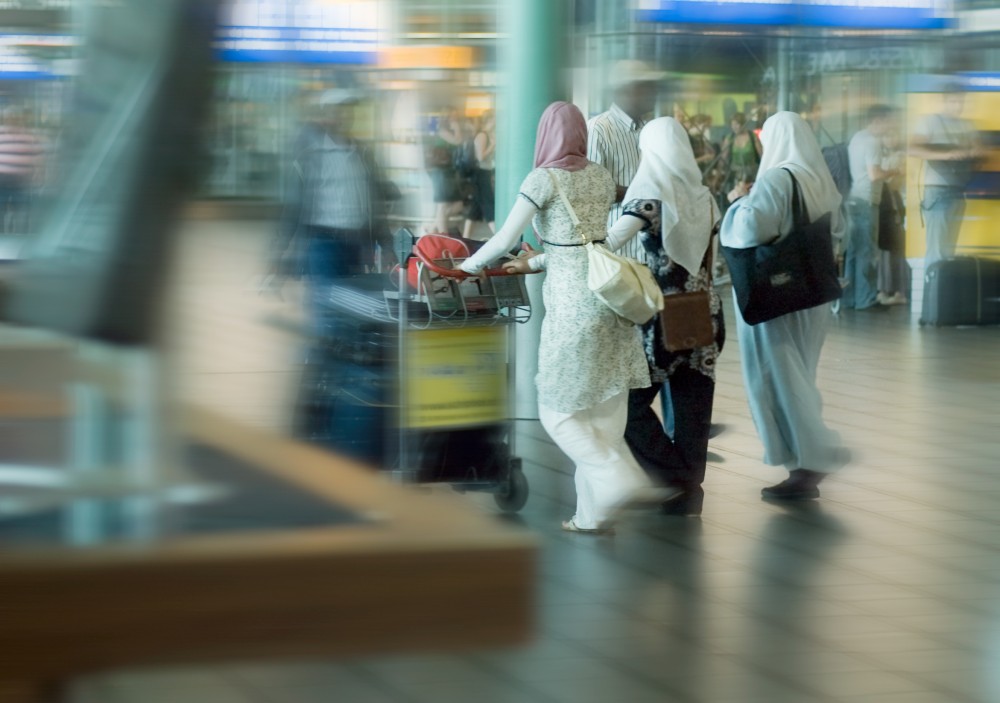Being Muslim at an American airport
When I fly I smile a lot, type only in English, and pretend I'm not reading a book about the rise of ISIS.

In the fall of 2016, I was to fly to Denver for the launch of a paper at the Online News Association’s annual conference. As a Muslim American, I have a standard protocol that I follow prior to and during air travel. I stay away from the brightly colored tunics that I usually wear, I wear more makeup than usual, and I smile a lot whether or not I have any reason to.
It is not just how I appear that I worry over; there is also the issue of what I carry with me and what I carry it in. A tote bag that has Urdu lettering and in which I usually carry my computer is a no. The keyboard overlay with Urdu letters that I use if I want to type in Urdu is also a no. I go through the call and message log on my cell phone and erase all the text messages that are in Urdu. I ponder over whether I should delete all the text messages from people with Arabic names, even when they are written in English, and keep only the ones with safe American names. I wonder if I should give safe American code names to all my family and all the friends who don’t have them. I have a bad memory and so I do not do this, plus having a code may appear incriminating just in itself.
On this day and this flight to Denver, there is an additional conundrum. I have been reading Joby Warrick’s book Black Flags: The Rise of ISIS and am about a hundred pages in. I want to use the hours of waiting—at the airport, on the flight, and at the many other junctures of travel that require it—to get further into the book. I write about terrorism and the conference paper I am presenting is about terrorism, so it makes sense to read this book.





